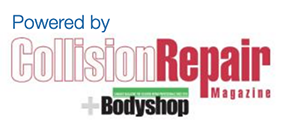The recent study by the Insurance Institute for Highway Safety (IIHS) casts a spotlight on the current state of partial driving automation systems, revealing a concerning gap in safety measures. With only one out of 14 systems earning an acceptable rating, the findings signal a critical need for improvement in an industry racing towards automation.
Despite the advancements in Advanced Driver Assistance Systems (ADAS), such as automatic emergency braking and adaptive cruise control, the IIHS’s inaugural ratings program underscores the complexities of ensuring safety in vehicles equipped with these technologies. The calibration and maintenance of these systems are paramount, especially after a collision, to maintain their effectiveness and safeguard passengers.
Furthermore, recent statistics from Transport Canada’s National Collision Database (NCDB) for 2021 paint a sobering picture of road safety in Canada. With 1,768 reported fatalities and 8,185 serious injuries, the numbers barely reflect a decrease despite technological advancements aimed at making roads safer. This emphasizes the undeniable role of human error and the necessity for a multi-faceted approach to road safety, combining technology with improved driver education and awareness.
The IIHS study is a wake-up call, highlighting the urgent need for enhanced safety measures in vehicles equipped with partial automation. It reveals that while some systems show promise, many lack robust safeguards, effective driver monitoring, timely attention reminders, and appropriate emergency procedures to ensure driver and road safety.
As the automotive industry evolves with increasingly sophisticated ADAS technologies, the challenge of ensuring these systems are accurately maintained and calibrated grows. While ADAS can significantly reduce the risk of accidents, these systems have limitations and are not infallible. Understanding the need to maintain and calibrate ADAS technologies is crucial. Post-collision, professional checks and recalibrations are essential to ensure system accuracy and reliability, and to prevent safety compromises.








